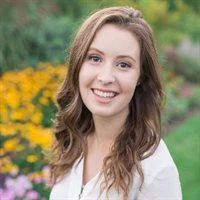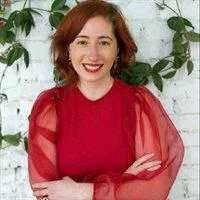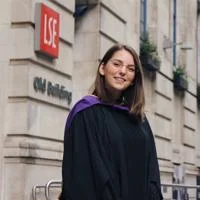Alumni Spotlights
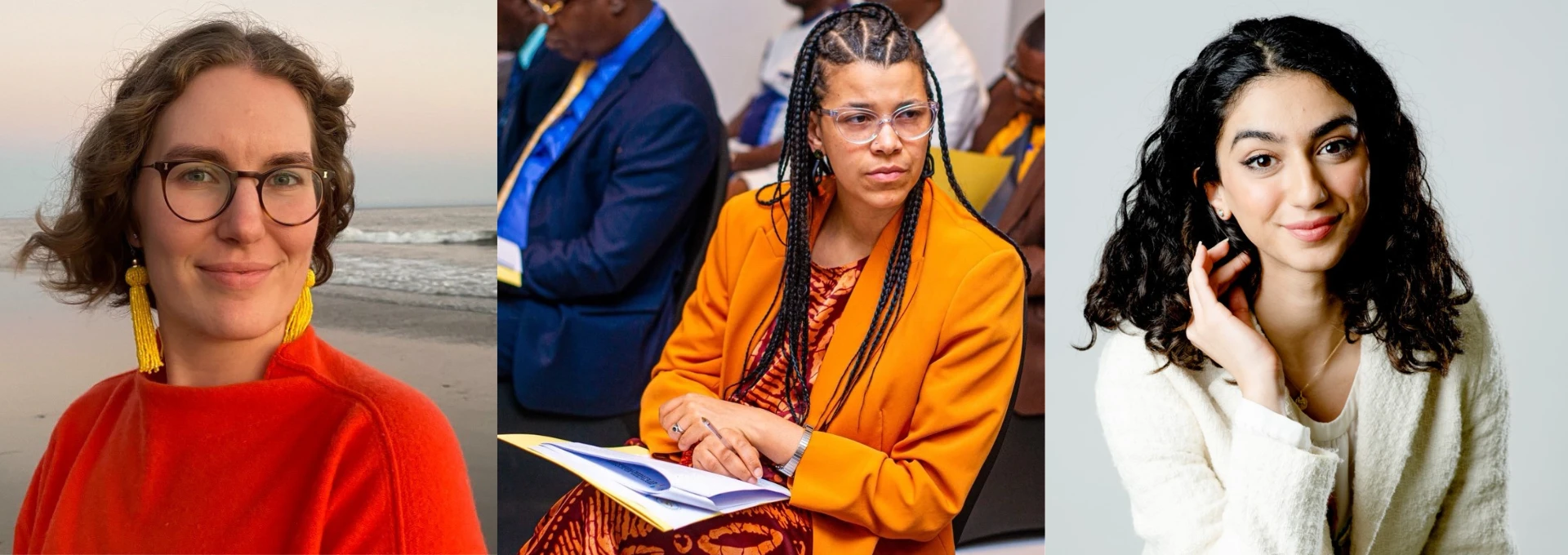
The study of gender is part of wider story about social exclusion, social (in)justice and fundamental questions about living. Studying for my masters opened my eyes to new ways of thinking about problems and laid the groundwork for what I would go on to do.
Dr Alexandra Fanghanel, Class of 2006
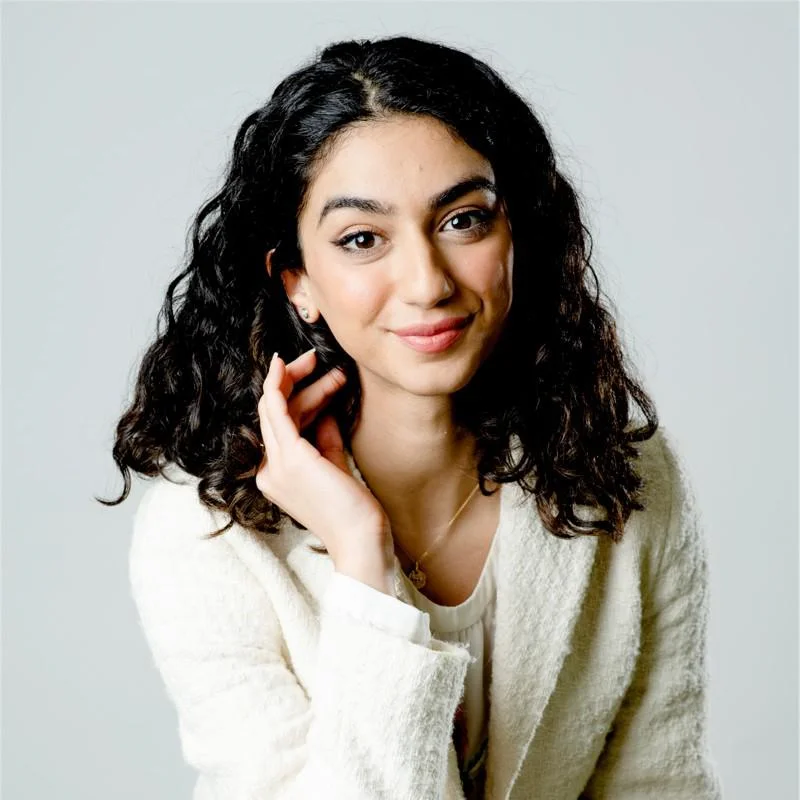
Alumni Spotlight: Tzeitel Degiovanni - MSc Gender, Media and Culture 2020
What are you currently doing and where?
Human Resources Consultant at Deloitte UK
How do you use what you learned at LSE Gender in your current role?
Currently using my degree to do internal work on progressing Black representation in the firm. Also assisting partners and directors in addressing gender disparity within my local team.
What advice do you have for current and/or prospective LSE Gender students?
Try to align your career with your passion, but remember this degree will help you in anything and everything you do because it challenges common ways of thinking and makes you a better person, both personally and professionally.
It was honestly the best year of my life, and if I could go back and learn everything all over again (and more!) I would.
If you want to learn more about Tzeitel's time at LSE Gender or her current work with Deloitte, you can reach her via email tzeiteldegiovanni@gmail.com, tz_degiovanni (Instagram), or on LinkedIn.
More alumni spotlights:
What are you currently doing and where?
After graduating from LSE Gender, I went to work for the Canadian federal public service as a Policy Analyst. I loved the opportunity to apply feminist theories to the work I was doing. Then in August 2024 I was diagnosed with an auto-immune brain injury called Anti-NMDA receptor encephalitis which has reshaped my life.
Why did you choose to study at LSE Gender?
LSE Gender was recommended to me as a place to learn from some of the world's leading scholars in feminist gender theory working on cutting edge projects. As a Canadian, the idea of connecting with other international students was another huge reason why I decided to study at LSE Gender.
How do you use what you learned at LSE Gender in your current role?
LSE Gender really affirmed the notions of systemic accountability and a need for policy change that doesn't focus on individuality. I will always be grateful to the faculty of LSE for their commitment to intersectional change. It also really refined my critical analysis skills. As a public servant, writing policy briefs this is a huge skill to have.
What advice do you have for current and/or prospective LSE Gender students?
Say hello to what comes at you during your time at LSE Gender. Whether that is a fellow student, the faculty, office hours, LSE student groups or other activities, if you can, find supports during your time at LSE. There are many supports during your time at LSE Gender.
Anything else you want to share about your time with us or the work you are doing currently?
You don't have to do your program alone. Higher education asks a lot of students but by finding colleagues, study groups and mentors, there is so much joy that can be found in your time at LSE Gender.
Is there a particular highlight about your time at LSE Gender you would like to share?
There was a particular day during the dissertation writing process that some LSE Gender pals and I were in the LSE Gender office all working on our individual projects. Sometimes it would be complete silence except for the sounds of keyboards typing and other times we would all break out into complete laughter. It was moments like that where scholarship and friendship came alive.
If you want to learn more about Emily's time at LSE Gender or her current work, reach out to her via LinkedIn or by email at emily.sams@live.ca.
What are you currently doing and where?
I am a researcher, consultant, and social entrepreneur, specializing in AI governance, digital rights, and feminist technology. I am the Founder and CEO of Newa Consultancy, where I develop strategies for Diversity, Equity, Inclusion, and Belonging (DEIB) in multinational organizations. I also co-founded MariaLab, a Brazilian feminist organization focused on digital security for women and LGBTQIA+ individuals. In addition to leading Newa, I actively contribute to policy discussions on AI, governance, and human rights in global forums and research institutions. I also run the newsletter The Hidden Politics of AI, which explores the intersection of AI, power, and inequality from a Global South perspective.
Why did you choose to study at LSE Gender?
I chose LSE Gender because of its rigorous interdisciplinary approach to gender studies and its commitment to addressing structural inequalities and social justice. Coming from a background in Sociology and Journalism, I wanted to deepen my understanding of feminist theory, intersectionality, and inequality regimes, particularly in relation to technology and governance. The opportunity to study at LSE also allowed me to engage with diverse perspectives from scholars and peers worldwide, shaping my work in feminist technology, AI ethics, and digital policy.
How do you use what you learned at LSE Gender in your current role?
The intersectional frameworks and critical feminist methodologies I studied at LSE are central to my work in AI governance, digital inclusion, and corporate diversity strategies. My dissertation, which applied Intersectionality Theory and Inequality Regimes to analyze gender equality policies in B Corps, has influenced how I assess gender biases in organizational models and digital governance. One unexpected application of my gender expertise has been in analyzing algorithmic discrimination in AI systems, particularly in hiring processes, platform regulation, and content moderation policies. These insights have informed both my consulting work with multinational corporations and my advocacy for inclusive technology policies in global forums.
What advice do you have for current and/or prospective LSE Gender students?
Make the most of the interdisciplinary approach: Gender studies at LSE provides tools that are applicable across multiple fields—policy, corporate governance, social justice, human rights, development, and digital ethics. Network beyond your cohort: Engage with faculty, visiting scholars, and research centers, as these connections can open doors for academic and professional collaborations. Bring your lived experience into your research: The most impactful gender studies work is deeply rooted in real-world issues, particularly in a Global South context. Stay engaged beyond LSE: Continue exploring how gender analysis intersects with broader socio-political and economic structures, as these frameworks remain highly relevant across different sectors.
Anything else you want to share about your time with us or the work you are doing currently?
My time at LSE was pivotal in strengthening my academic and professional trajectory in gender and technology. I am currently expanding my work on AI ethics, feminist digital governance, and algorithmic discrimination, particularly in the context of the Global South. My goal is to ensure that gender perspectives are central to AI policy, corporate governance, and technology regulation worldwide.
Is there a particular highlight about your time at LSE Gender you would like to share?
One of my most significant experiences was the intellectually stimulating environment of LSE Gender, where I was challenged to critically rethink traditional organizational models, policy structures, and AI governance through a feminist lens. The mentorship with scholars and peer discussions were instrumental in shaping my research and career path.
If you want to learn more about Carine's time at LSE Gender or her current work in AI ethics and Gender, reach out to her via LinkedIn or by email at carine.roos@gmail.com. You can subscribe to Carine's newsletter 'The Hidden Politics of AI' here.
What are you currently doing and where?
I'm currently a PhD student in Sociology at the University of Pittsburgh
How do you use what you learned at LSE Gender in your current role?
My time at LSE was a wonderful journey. It was constructive in shaping my research interests and honing my skills. Studying decolonial and intersectional gender theories laid an epistemological foundation for my current research on technology and gender politics. The diverse and inclusive academic environment in the department made me more open-minded, allowing me to develop collaboration and communication skills, with a focus on feminist ethics of care. These experiences have been especially important to my studies at the Social Movements Lab here in Pittsburgh.
What advice do you have for current and/or prospective LSE Gender students?
Enjoy your study and stay critical. The Department of Gender Studies is a place where you can feel the true power of diverse thoughts and actions; it allows you to make impactful change in solidarity with the resisters. And, of course, there are plenty of resources here provided by a variety of people. So make the most of these resources and pave the way to realizing your aspirations.
If you want to learn more about Linyuan's time at LSE Gender or her current work at the University of Pittsburgh, reach out to her via LinkedIn or by email at zenglinyuan325@gmail.com.
What are you currently doing and where?
Expert in Human and Social Sciences at the Consultative Human Rights Commission of Luxembourg
How do you use what you learned at LSE Gender in your current role?
The interdisciplinary training I received has equipped me with a nuanced and intersectional understanding of human rights issues, which is crucial for developing inclusive and equitable advocacy and policy strategies. For instance, when analyzing policies, I ensure that they address the needs of diverse groups and do not inadvertently reinforce existing inequalities. My academic training has enabled me to conduct thorough research that accounts for gendered experiences, allowing me to identify gender disparities and recommend actionable solutions. Overall, my degree in Gender Studies is integral to my work at a human rights institution. It provides a critical framework for understanding and addressing complex social issues, enriching both my professional practice and the institution’s impact.
What advice do you have for current and/or prospective LSE Gender students?
Stay informed about current events and social issues, and use your academic knowledge to contribute to discussions, policymaking, and community initiatives. These experiences will not only deepen your understanding of the theoretical frameworks and concepts guiding your studies, but will also help you bridge the gap between theory and practice, making your education more impactful and preparing you for a career where you can drive real change.
If you want to learn more about Laura's time at LSE Gender or her current work with the Consultative Human Rights Commission of Luxembourg, reach out to her via LinkedIn or by email at laura.carocha@yahoo.com
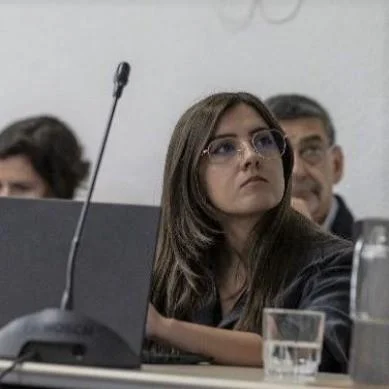
What are you currently doing and where?
Research Assistant at the United Nations ECLAC Division for Gender Affairs
How do you use what you learned at LSE Gender in your current role?
The transition from my MSc to the UN was smooth and easy- the curriculum of GDG closely aligns to the topics I work with at the UN. At times I have even attended events with some of my former lecturers and professors.
What advice do you have for current and/or prospective LSE Gender students?
Take advantage of the resources LSE provides, use your time to network, keep in touch with professors and classmates
If you want to learn more about Paula's time at LSE Gender or her current work with the United Nations, reach out to her via LinkedIn or by email at paula.aghon@gmail.com.

What are you currently doing and where?
Deputy Head of Global Programmes, World Association of Girl Guides and Girl Scouts, based in London and working with 153 countries in delivering life-changing interventions/programes for girls and young people.
How do you use what you learned at LSE Gender in your current role?
My gender expertise comes in handy in developing/updating organisational policies, policy advocacy, resource mobilisation, and strategy development.
What advice do you have for current and/or prospective LSE Gender students?
Expand your network, meet people in your field of interest, and explore possible collaborations.
If you want to learn more about Rio's time at LSE Gender or her current work with World Association of Girl Guides and Girl Scouts, reach out to her via LinkedIn.

What are you currently doing and where?
I'm in my 2nd year of a PhD at King's College London in the department of Global Health and Social Medicine. I'm researching the remaking of the self after cancer, with a focus on pleasure, embodiment and creativity.
How do you use what you learned at LSE Gender in your current role?
My research project is driven by a feminist ethics of care, and a lot of what I learnt during my MSc at LSE underpins my work.
What advice do you have for current and/or prospective LSE Gender students?
Be open to your path being different than you expected! I did not expect to have taken the path I did, but I remained open and changed course several times while at LSE and beyond.
If you want to learn more about Carmel's time at LSE Gender or her current research at KCL, reach out to her via email carmel.cardona@kcl.ac.ukor Twitter (X) @hellocarmel
What are you currently doing and where?
I work in International Trade at the Department of Business and Trade (DBT) within UK's Civil Service. I currently focus on Non-FTA agreements between UK and partner countries.
How do you use what you learned at LSE Gender in your current role?
My Gender degree plays a central part of my work - we often have to consider the implications and outcomes of our agreements and Gender inclusion is either a key chapter or negotiations point when we enter agreements. Additionally, we need to ensure that intersectional characteristics of individuals remain protected, and are promoted through any policy work we do.
What advice do you have for current and/or prospective LSE Gender students?
The best advice I can give is to really engage with the material as it is not only very interesting at a theoretical level, but also very relevant to many career streams coming up. There is demand for people that truly understand Gender theory, intersectionality and what true inclusion looks like. GDG in particular provides you with a global view on how these interact with economics, trade and politics which I personally have found very useful for my work.
On a personal level, I feel this course has given me a lot of confidence and strength to deliver high standards and also stand up for myself and my team when required.
If you want to learn more about Aashna's time at LSE Gender or her current work with the Department of Business and Trade, reach out to her via LinkedIn.
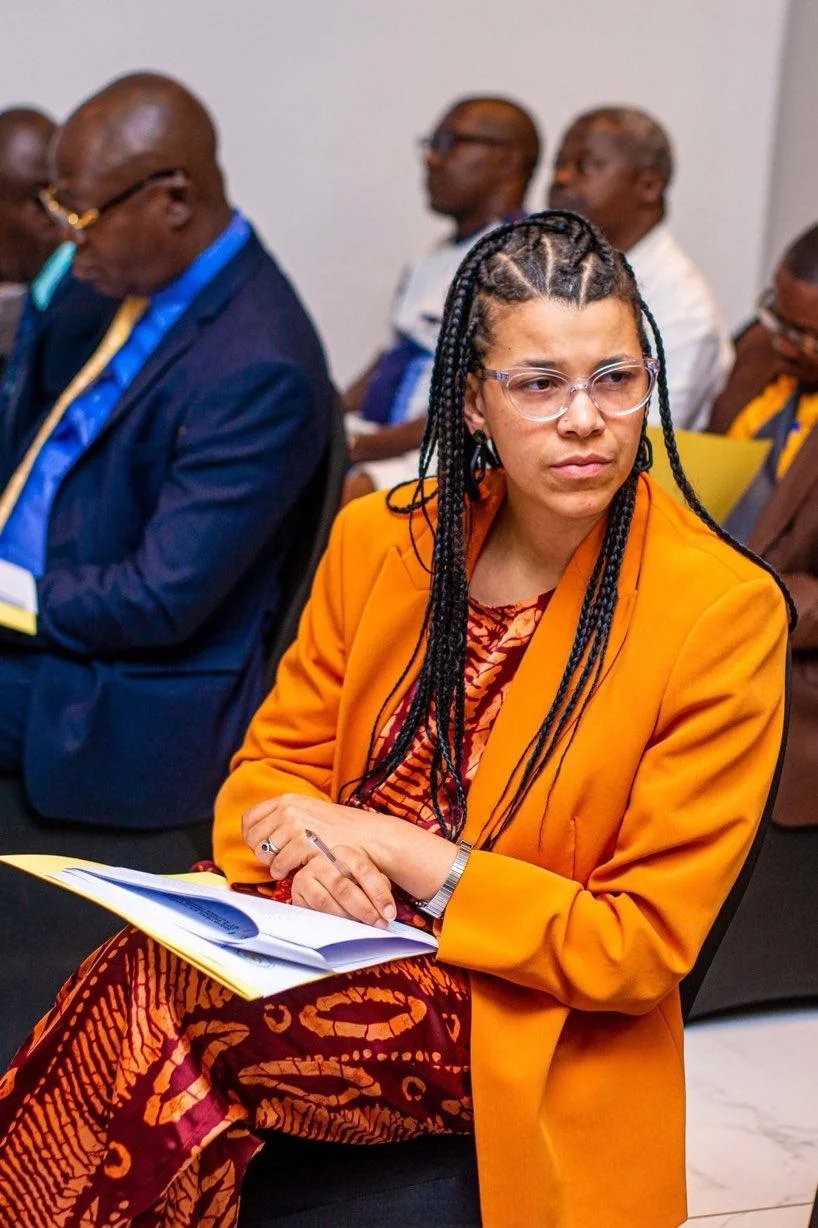
What are you currently doing and where?
I am posted in Kinshasa DRC with the Foreign Commonwealth Development Office as a social development advisor.
How do you use what you learned at LSE Gender in your current role?
I was working for the xDFID whilst doing my postgrad at a junior level. The masters was critical in allowing me to profess technically and I apply the theories daily.
What advice do you have for current and/or prospective LSE Gender students?
Enjoy every moment of the course, make connections with other students and never stop learning.
If you want to learn more about Solène's time at LSE Gender or her current work with the Foreign Commonwealth Development Office, reach out to her via email at solene.bryson@outlook.com or on X (Twitter) @SoleneBryson.
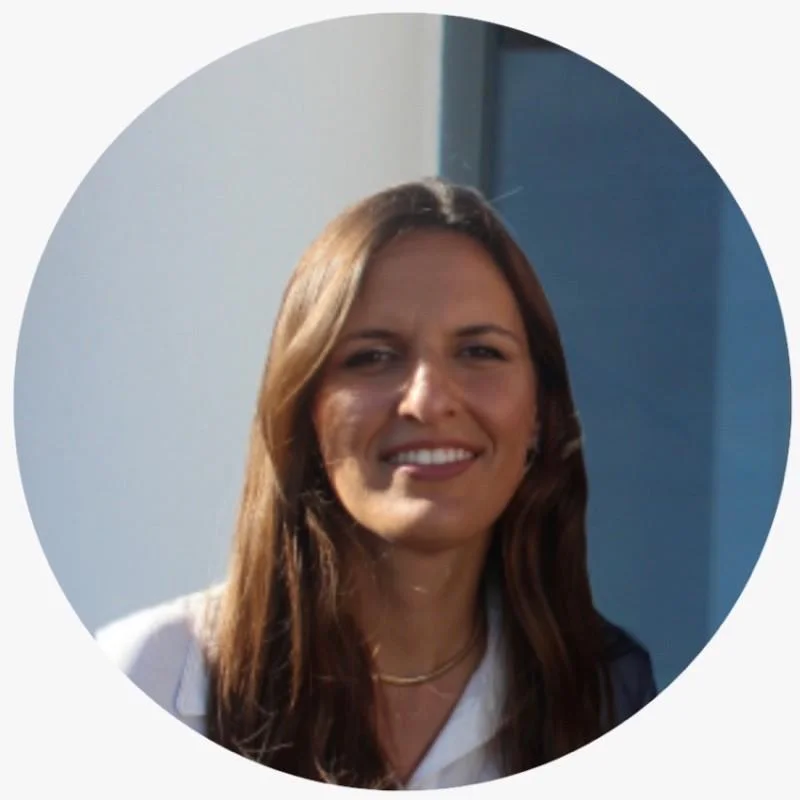
What are you currently doing and where?
UN Global Goals 2030 Consultant and Founder of The Gender Diplomat
How do you use what you learned at LSE Gender in your current role?
My MSc programme really is the analytical backbone of all my research, projects and activities. I learned so much at LSE. Since then I took that knowledge and experience all the way from London to Lisbon, where the WPS agenda is still overlooked. This has allowed me to reach out to and now work with major political players (ministers, diplomats, ambassadors, politicians...) on advancing equality, peace and international security debates in Portugal.
What advice do you have for current and/or prospective LSE Gender students?
Use your LSE times as the foundation for what's to come. Grow your roots, be present, reach out to organisations and stakeholders, get to know yourself. Taking it easy allows you to stay grounded.
If you want to learn more about Maria's time at LSE Gender or her current work with the United Nations and The Gender Diplomat, reach out to her via LinkedIn.

What are you currently doing and where?
Human Resources Consultant at Deloitte UK
How do you use what you learned at LSE Gender in your current role?
Currently using my degree to do internal work on progressing Black representation in the firm. Also assisting partners and directors in addressing gender disparity within my local team.
What advice do you have for current and/or prospective LSE Gender students?
Try to align your career with your passion, but remember this degree will help you in anything and everything you do because it challenges common ways of thinking and makes you a better person, both personally and professionally.
It was honestly the best year of my life, and if I could go back and learn everything all over again (and more!) I would.
If you want to learn more about Tzeitel's time at LSE Gender or her current work with Deloitte, you can reach her via email tzeiteldegiovanni@gmail.com, tz_degiovanni (Instagram), or on LinkedIn.
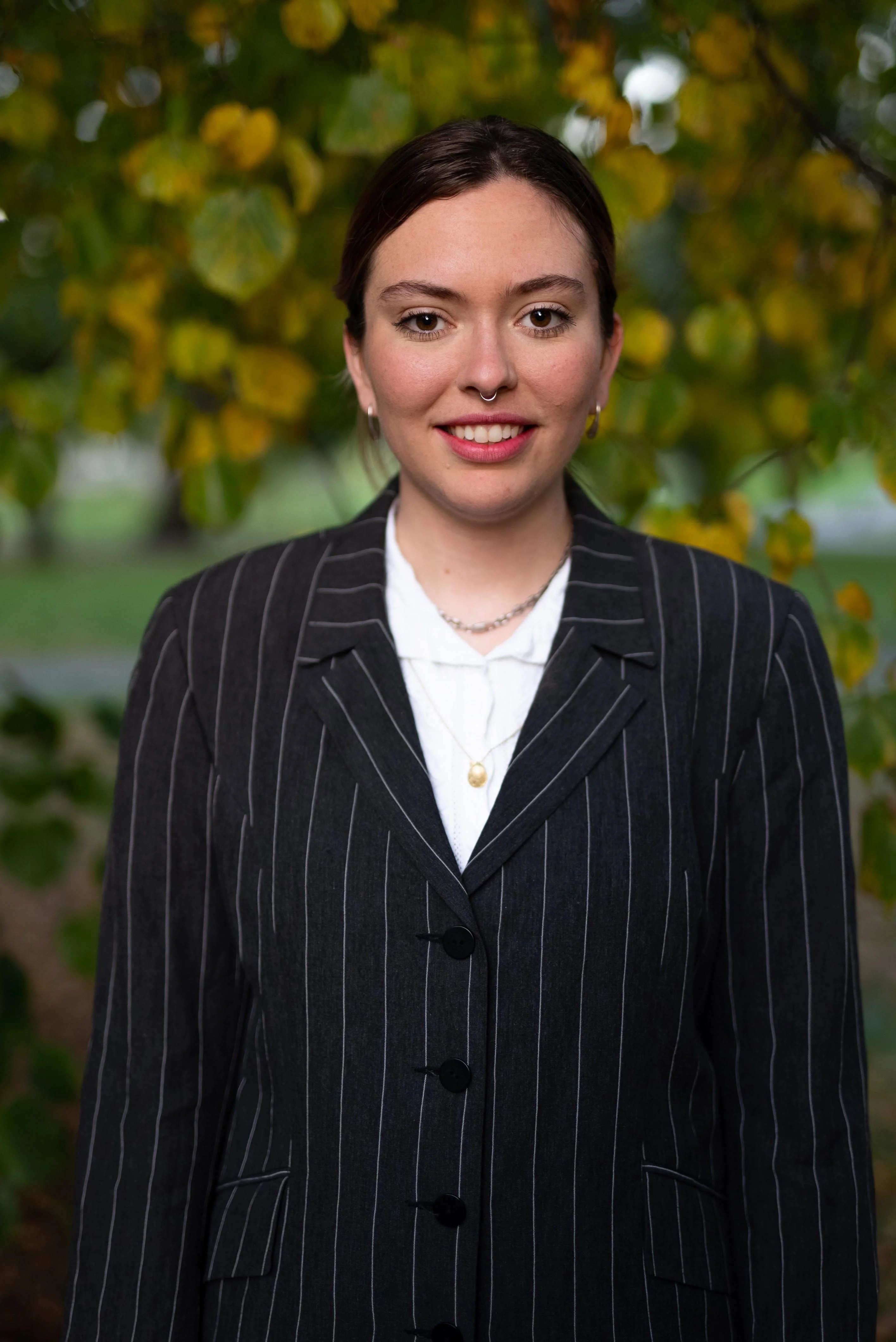
What are you currently doing and where?
Journalist reporting on European Research Policy for Research Professional News at Clarivate
How do you use what you learned at LSE Gender in your current role?
Since I report on research policy, I rely heavily on the skills I learned with regards to research ethics and integrity. I also use theories on diversity and inclusion to report on progress across all research sectors and on gender responsive budgeting to assess financial frameworks.
What advice do you have for current and/or prospective LSE Gender students?
Gain as much experience as possible outside of the classroom, and keep an open mind with regards to careers. I had no journalistic experience when I graduated but have managed to stay in the research sector and enjoy it immensely.
In my work, I often report on breaches of academic freedom and hostility towards gender studies across Europe, so I'd like to say that it is important to persevere and stay positive in the face of intolerance.
If you want to learn more about Nina's time at LSE Gender or her current work with Clarivate, you can reach her via email ninabowagner@gmail.com, X (Twitter): @snail_nina, or Instagram: @snail_nina

What are you currently doing and where?
I am an independent consultant at the Asian Development Bank, where I lead knowledge management and strategic communications for a technical assistance project focused on strengthening women's resilience to heat stress in Asia and the Pacific. Feel free to check out our work on gender and heat stress.
How do you use what you learned at LSE Gender in your current role?
At LSE Gender, I learned to always keep gender in focus. In my role, I ensure ADB’s communications are gender-responsive and that women's voices are central. This focus helps highlight how climate resilience and gender equality intersect, recognizing women's needs and contributions rather than overshadowing them with broader sustainability or economic goals.
What advice do you have for current and/or prospective LSE Gender students?
LSE was my playground for exploration and growth— so I’d say stay curious and open-minded! Embrace solidarity, but don’t be afraid to challenge assumptions and always speak up.
If you want to learn more about Micaela's time at LSE Gender or her current work with the Asian Development Bank, you can reach her via Instagram at @micaela__a or find her on LinkedIn
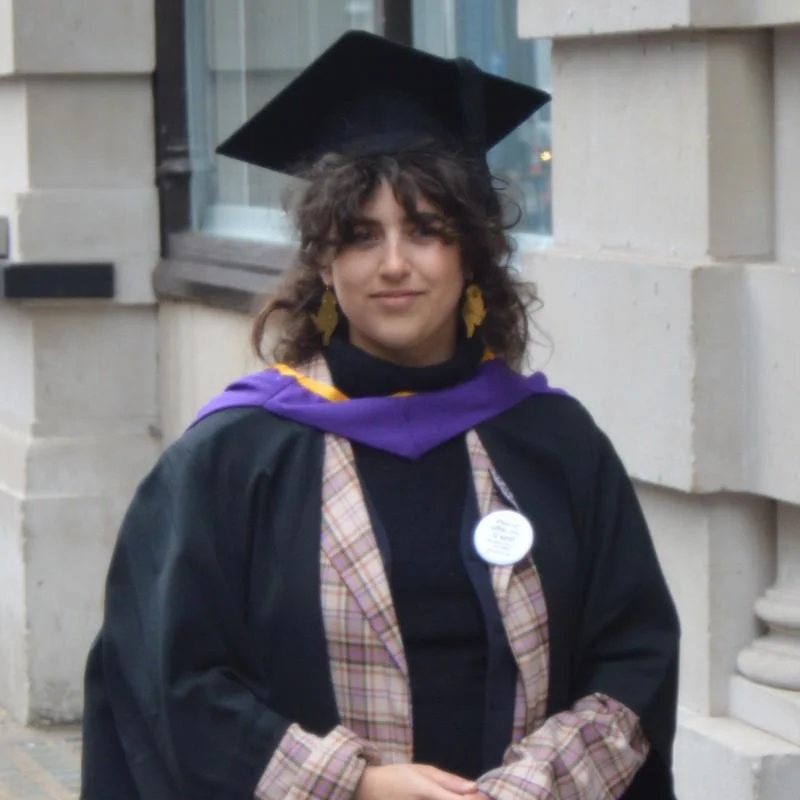
What are you currently doing and where?
Research Assistant at UCL for Centre for Gender and Disaster
How do you use what you learned at LSE Gender in your current role?
Never thought I’d be in a "hard" science discipline, the whole point of the department is to apply gender and intersectional thinking to hazard and disaster work (tsunamis, floods, climate change, earthquakes).
What advice do you have for current and/or prospective LSE Gender students?
Don’t be disheartened - keep going. I found finding work really hard. I had no relevant work experience when I left my masters (only part time jobs in unrelated areas to earn money) and I got so many job rejections.
I got this job through emailing the head of the centre and saying how interested I was in their work and asking about voluntary positions (I’m a UK resident so I could apply for unemployment benefit and live with parents). When I was given a voluntary role my benefits officer suggested I asked the workplace to give me travel expenses if I was working for free. When I asked they said they could only do that if they got me on payroll….. so they did! After that role finished they offered me another position, which I’m in now.
If you want to learn more about Jessica's time at LSE Gender or their current work with UCL, you can reach them via email at jessroberts2710@gmail.com.
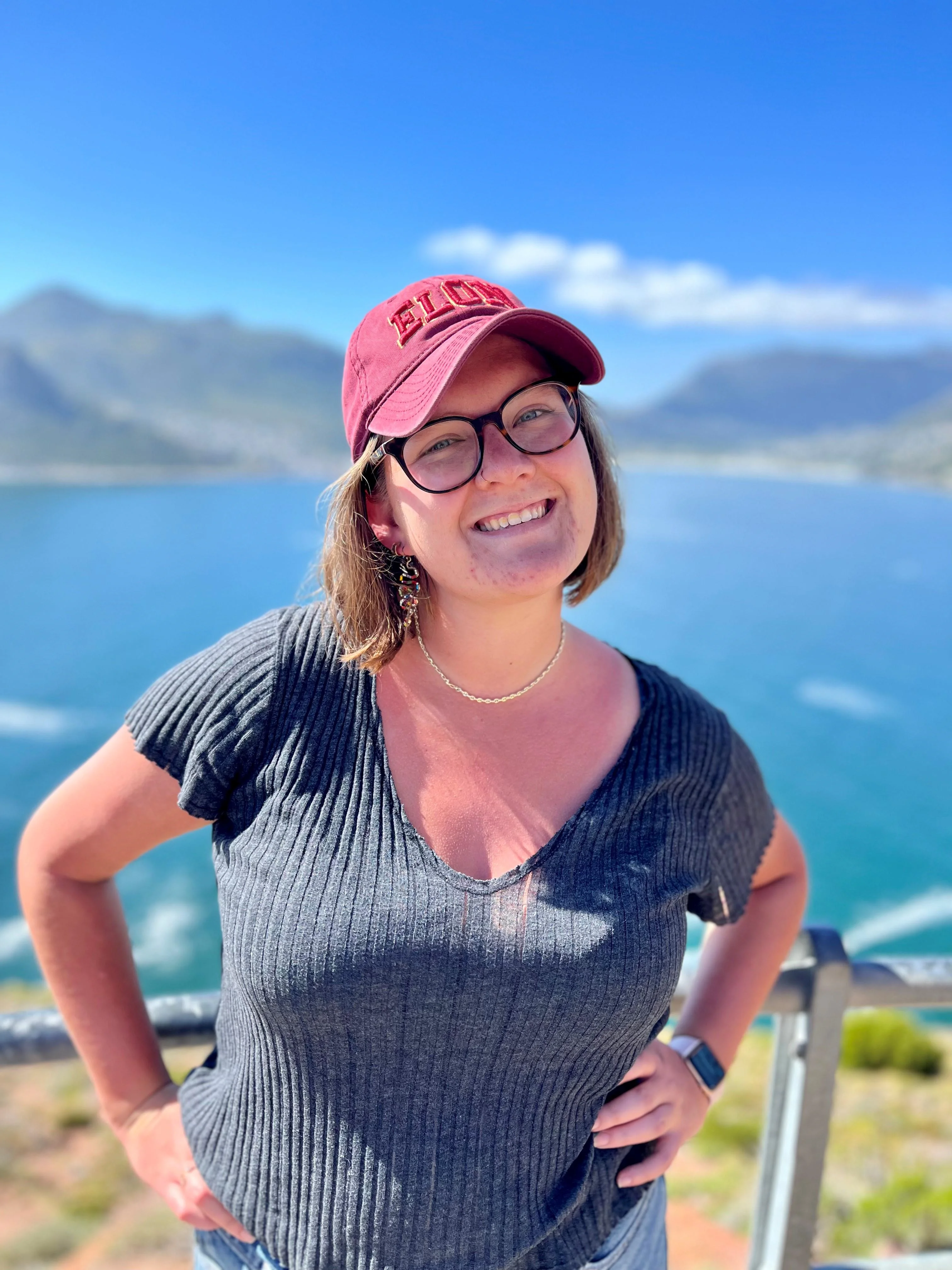
What are you currently doing and where?
I am an Economic Development Analyst at RTI International in North Carolina, USA
How do you use what you learned at LSE Gender in your current role?
My experience at LSE Gender comes up throughout my work. A lot of my focus during my MSc was on care policy and access to care. In my current role, I do a lot of work around workforce development and access to care is increasingly coming into focus as a need that the government or employers must meet. More broadly, my work supporting different organizations as they work on inclusive, place-based economic development projects is immeasurably strengthened by my gender background and time at LSE.
What advice do you have for current and/or prospective LSE Gender students?
Take advantage of everything outside the classroom as well. Yes, your classes are incredible, but the time spent with professors, engaging in leadership and curricular opportunities within the department and school, and attending cultural events across London will teach you so much and prepare you for your future just like classes will.
When I started my masters at LSE Gender, someone in the department made a point of telling all of us that "you deserve all of the opportunities available to you." It's stuck with me ever since so want to pass that on to current students whether they're just starting their time at LSE or trying to figure out what's next.
If you want to learn more about Pearl's time at LSE Gender or her current work with RTI International, you can reach her via email at sullivan.pearl17@gmail.com or on LinkedIn.
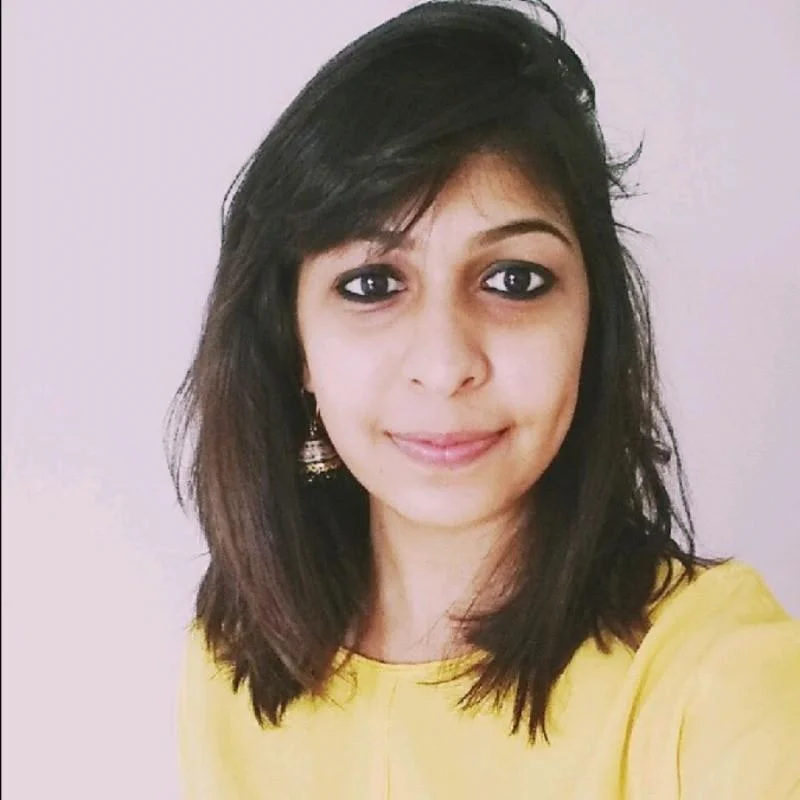
What are you currently doing and where?
I am currently working in the social impact space, helping to scale innovative solutions that address complex social problems across the Global Majority. In my current role as a Senior Associate at the Global Development Incubator (GDI) South Asia, I work on two initiatives focused on value-based healthcare and the economic empowerment of youth. My role involves building strategies to strengthen on-ground implementation of these two initiatives, project management, fundraising, advocacy, M&E, and stakeholder-focused communications.
How do you use what you learned at LSE Gender in your current role?
Studying at LSE has empowered me to intentionally integrate a gender and intersectional lens into all aspects of my work. Whether crafting a strategy to apply a value-based care initiative in a Low & Middle Income country context or analyzing the aspirations of youth in India, the program has taught me to place the context for which I am designing a solution or strategy at the forefront. This involves understanding the most affected populations, their experiences, and the various social barriers they face.
From a skills perspective, my education has enabled me to effectively apply feminist research values and principles in my work. This includes being mindful of the sources I cite to present different types of data and properly crediting the authors involved. The course has instilled in me numerous skills and values that I endeavor to integrate into my work, with the aim of embedding them into the organizational culture.
What advice do you have for current and/or prospective LSE Gender students?
Trust the process and your professors. You are entering unknown waters, and it may make you uncomfortable. You will definitely also feel lost and confused, but you will emerge from it feeling more empowered, fulfilled, and closer to who you are.
If you want to learn more about Sharanya's time at LSE Gender or her current work with the Global Development Incubator, you can reach her via email at sharanyahariharan02@gmail.com or on LinkedIn.
